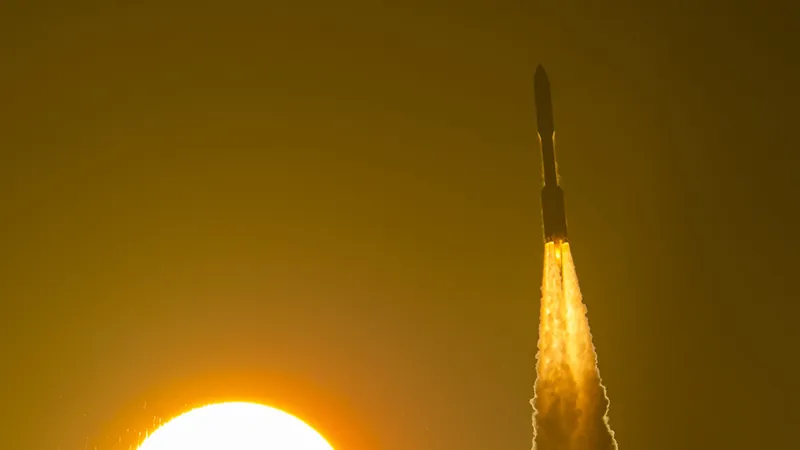
Is Amazon Ready to Launch? Project Kuiper's Do-or-Die Moment Approaches!
2025-06-23
Author: Yan
Countdown to Success: Amazon's Project Kuiper Takes Flight!
In a thrilling follow-up to its last launch just weeks ago, United Launch Alliance (ULA) successfully sent 27 broadband satellites soaring into space for Amazon's ambitious Project Kuiper. The Atlas V rocket blasted off from Cape Canaveral, Florida, at 6:54 AM EDT, delivering the satellites to an optimal orbit of around 280 miles above Earth. This marks a significant milestone as Amazon gears up to rival SpaceX's Starlink network.
A Rocky Path: Early Challenges and Major Goals
Before this launch, ULA had to overcome critical issues, including a malfunction in the engine that delayed the countdown. However, with obstacles now behind, this lift-off propels Amazon’s count of operational Kuiper satellites to 54, making strides toward a massive infrastructure of 3,232 satellites intended to blanket the globe in broadband coverage.
Unprecedented Expansion: Amazon's Satellite Fleet and Future Launches
With over 80 launches lined up across four companies, ULA is poised to handle more than half of the Kuiper constellation’s deployment. Amazon is tying up contracts, including nine more Atlas V rockets before ULA transitions to the next-gen Vulcan rocket, promising even higher launch capacities. Contracts with Europe's Ariane 6 and Blue Origin's New Glenn rockets also signal a robust plan for expansion, though their track records raise questions.
Can Amazon Catch Up to SpaceX?
While ULA has multiple Atlas V rockets ready, the newer models like Vulcan and New Glenn are still unproven with limited launches. Meanwhile, SpaceX's Falcon 9 plays a crucial role, boasting a proven track record and an operational pace that Amazon is banking on for its upcoming launches. In a tactical pivot, Amazon has also secured Falcon 9 rides as it seeks to accelerate its satellite deployment.
A Battle Against the Clock: FCC Deadlines Loom
As Amazon races to establish its constellations, the stakes are high due to the FCC's mandates. By July 2026, Amazon is obligated to place at least 1,616 satellites into orbit or face potential setbacks. Historically, delays have characterized satellite projects, yet with an estimated $16.5 to $20 billion investment, experts believe the FCC will likely allow extensions.
The Future of Connectivity: Will Kuiper Make Its Mark?
As Amazon navigates the complex web of satellite launches, the pressure is mounting. With the first Vulcan launch anticipated later this year and multiple launch platforms being developed, the countdown to a more connected world has officially begun. Will Amazon’s Project Kuiper take the lead in the broadband battle, or will it fall behind? Time will tell—but it’s clear; the competitive landscape is heating up!


 Brasil (PT)
Brasil (PT)
 Canada (EN)
Canada (EN)
 Chile (ES)
Chile (ES)
 Česko (CS)
Česko (CS)
 대한민국 (KO)
대한민국 (KO)
 España (ES)
España (ES)
 France (FR)
France (FR)
 Hong Kong (EN)
Hong Kong (EN)
 Italia (IT)
Italia (IT)
 日本 (JA)
日本 (JA)
 Magyarország (HU)
Magyarország (HU)
 Norge (NO)
Norge (NO)
 Polska (PL)
Polska (PL)
 Schweiz (DE)
Schweiz (DE)
 Singapore (EN)
Singapore (EN)
 Sverige (SV)
Sverige (SV)
 Suomi (FI)
Suomi (FI)
 Türkiye (TR)
Türkiye (TR)
 الإمارات العربية المتحدة (AR)
الإمارات العربية المتحدة (AR)